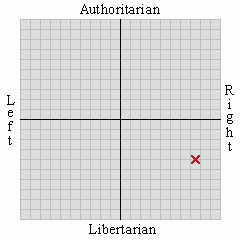Some new technologies and innovations are genuine improvements and are long-lasting welfare enhancers. But others are the basketball equivalent of pump fakes – they look like the real deal and prompt market actors to leap hastily into action, only to realize later that their bets were wrong.
Given this dynamic, markets are unpredictable, prone to booms and busts, characterized by bouts of exuberance that are rational or irrational only in hindsight.
But markets are also the only reliable mechanism for sorting out this messy process quickly. In spite of the booms and busts, markets drive genuine long-run innovation and wealth creation.
It goes on to mention rent-seeking in government, and so on.
I think I've been guilty of, in the past, seeing markets as perfect, when in fact, since humans aren't perfect (or more of, they don't have perfect information) so markets cannot be perfect, and from time to time something goes wrong.
But as humans learn from experience, the market improves with experience (recessions). That's why it's so important to let the market reallocate in recession (since government will do an even worse job - they don't know the minds of so many economic agents) and not to help create bubbles in the boom.
The article in the CSM is a good read. It sums up my view of it all quite well.
(hat-tip: Anti-Dismal)




